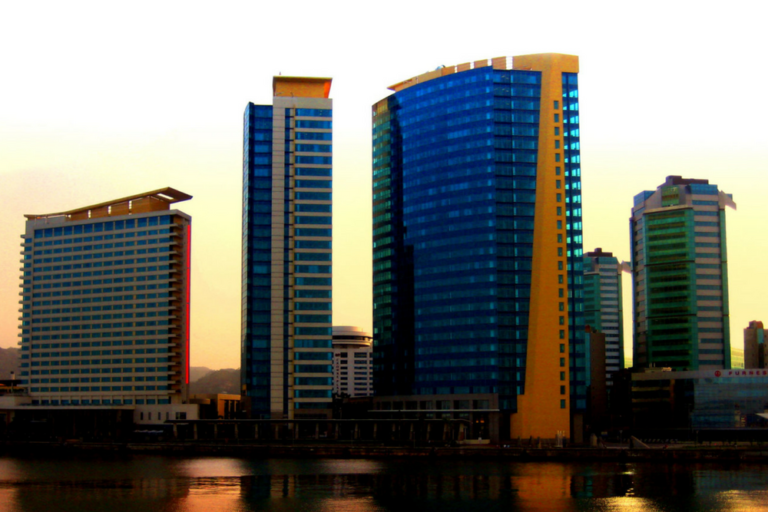
-“Trinidad and Tobago, along with other Caribbean nations, needs to “provide higher education…that is globally competitive and twenty-first century relevant.” – Trinidad & Tobago President Anthony Carmona (2015)
The Chicken or the Egg
When compared to its CARICOM (Caribbean Community) partners, Trinidad and Tobago’s economic standing might appear to be prosperous due to its oil and gas wealth, however, the sustainability of these enterprises must be reevaluated as the natural reserves slowly and surely dwindle along with the revenue generated by it. Government officials and private citizens alike must face the reality that the nation’s future wealth lies more so in the human resources and not only the natural resources. In the pursuit of economic development, which comes first in the proverbial, “chicken or egg” conundrum – is it education that drives the evolution of a society or is the causal agent to sustainable development an entrepreneurial and innovative spirit? In this evolving world, both are major contributing factors and demonstrate indispensable linkages in theory and application. Therefore it befits a developing nation to ensure that its strategy and model in regards to education is not only designed to efficiently administer the curriculum and subject matter but also optimizes the potential of the youth and future working population by acting as a catalyst for an innovative society.
Vision 2020
Education has long been a valued undertaking in the Caribbean, seen by all ethnic groups as an equaliser in the post-colonial state; a real asset in the pursuit of social mobility. As such each governing body or administration has in one way or the other made sizable investments into the development and improvement of our education system; restructuring when necessary to align the country’s economic needs to the emergent requirements of the modern society. This wave of academic modification was not unique within the region and efforts were made as early as 1991 to collectively reform the education systems in the eight countries of the Organization of Eastern Caribbean States (OECS). They jointly recognized a need to analyze, formulate and produce the Education Reform Strategy which included modernizing teachers’ education, textbooks, and evaluation processes.

Years later in 2002, Vision 2020 was put forward by the late former Prime Minister; Patrick Manning and was essentially the proposed blueprint to move Trinidad and Tobago to developed country status by the year 2020, equating education reform to an increase in national economic output.
There were four primary goals of this structural development plan:
- to become well known for excellence in innovation,
- to create a seamless self-renewing, high-quality education system,
- to produce a highly-skilled workforce to drive innovation and production, and
- to harness cultural elements to inspire innovation and creativity.
Nonetheless, while there have been many advancements in the material manifestations of the education sector such as a more detailed curriculum (academic and vocational), increased number of schools and easier access to education, there has been no real changes to the mindset of our educators, policymakers or pedagogical progression. The lack of theoretical change equates to essentially “cooking without gas” and diminishes any real chances of across-the-board development.
Currently, its the mid-point for the year 2018, and T& T’s reality does not mirror the illustrious design of Vision 2020. In the 2017 Global Innovation Index, it ranked 91 out of 127 economies with a mediocre classification in innovation. While equipped with a highly educated workforce and an adult literacy rate of about 99.00 percent in 2017, the country is yet to see a return of investment as it applies to the GDP (Gross Domestic Product). It seems that despite its notable academic achievements, the education system remains limited in its ability to produce innovators and entrepreneurs and reduce the culture of dependency.
Tradition versus Innovation

Keeping with the British tradition, the education system of the English-speaking Caribbean features a mostly meritocratic, academic hierarchy where students are assessed, filtered and segregated depending on their examination results. This tracking and placing of persons, start as early as three years old with consistent and adjoining assessments that follow well into adult tertiary institutions. While a teacher-centered, assessment focused approach has been the primary facilitation style in the classroom and has been successful to some extent, it has proven not to be the best in terms of producing an emotionally intelligent, forward-thinking working populace, which is essential to attain the region’s development goals. Can it be done?
It is critical to understand the British Caribbean’s education model within its own environment and consequently recognize its limitations, it becomes vital for comparative analysis to be done, not just regionally but internationally. In this respect, its informative to canvas the frameworks of other countries and in so doing, any techniques that could be adapted to fulfil the ever growing needs of our society.
-More on this to follow-